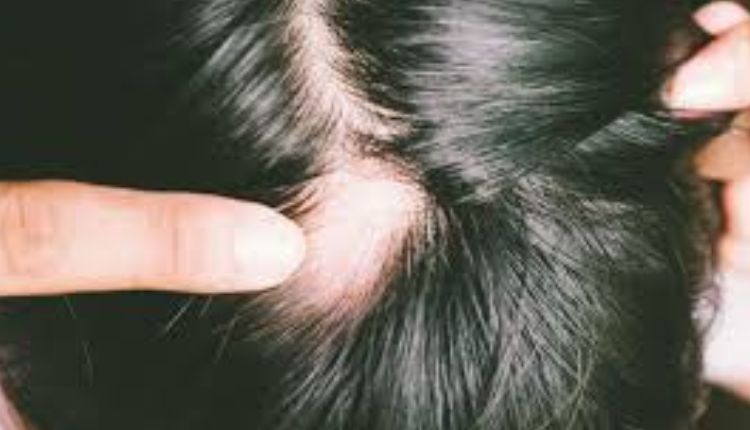Hair loss can be a distressing experience for many individuals, impacting self-esteem and confidence. In the quest to find solutions, the question arises: is there any real way to regrow hair? Let’s delve into this topic comprehensively to uncover viable methods and strategies for promoting hair regrowth.
Understanding Hair Loss
Hair loss, medically known as alopecia, can occur due to various factors such as genetics, hormonal changes, medical conditions, and environmental influences. It’s essential to identify the underlying cause of hair loss to determine the most effective treatment approach.
Genetic Predisposition and Hair Loss
Genetics play a significant role in hair loss, with conditions like male pattern baldness and female pattern hair loss being hereditary. Understanding genetic predispositions can help tailor treatment plans for addressing hair loss effectively.
Exploring Natural Remedies
Many individuals seek natural remedies for hair regrowth, aiming to avoid harsh chemicals and invasive procedures. While some natural treatments may show promise, it’s crucial to approach them with realistic expectations and caution.
Essential Oils for Hair Regrowth
Certain essential oils, such as rosemary oil and peppermint oil, are believed to promote hair growth by improving scalp health and stimulating hair follicles. Incorporating these oils into a regular hair care routine may contribute to healthier, fuller hair over time.
Medical Interventions
In cases where natural remedies may not suffice, medical interventions offer alternative solutions for addressing hair loss. These interventions range from topical treatments to surgical procedures, depending on the severity and underlying cause of hair loss.
Topical Treatments for Hair Regrowth
Topical medications like minoxidil (Rogaine) are commonly prescribed to promote hair regrowth by increasing blood flow to the scalp and revitalizing dormant hair follicles. Consistent application as directed by a healthcare professional is key to achieving optimal results.
Dietary Considerations
Nutrition plays a crucial role in maintaining overall health, including the health of hair and scalp. Incorporating nutrient-rich foods into your diet can support hair growth and minimize the risk of nutritional deficiencies that may contribute to hair loss.
Foods That Promote Hair Health
Certain foods rich in vitamins, minerals, and proteins are beneficial for hair health and regrowth. Examples include leafy greens, eggs, nuts, and fatty fish, which provide essential nutrients like biotin, iron, and omega-3 fatty acids necessary for strong, vibrant hair.
Lifestyle Factors
Beyond external treatments and dietary choices, lifestyle factors also influence hair health and regrowth. Adopting healthy habits and minimizing stressors can contribute to an optimal environment for hair growth.
Stress Management Techniques
Chronic stress can contribute to hair loss by disrupting hormonal balance and inhibiting hair follicle activity. Incorporating stress-reducing practices such as meditation, yoga, and regular exercise can promote overall well-being and support healthy hair growth.
FAQs (Frequently Asked Questions)
Are hair transplants a permanent solution?
- Hair transplants can provide a permanent solution for hair loss by relocating healthy hair follicles to areas of thinning or balding. However, the success of hair transplant procedures depends on various factors, including the individual’s hair loss pattern and the expertise of the surgeon.
Can dietary supplements help with hair regrowth?
- While dietary supplements containing vitamins, minerals, and botanical extracts are marketed for hair regrowth, their effectiveness varies among individuals. It’s essential to consult with a healthcare professional before taking supplements to address hair loss and ensure they are safe and appropriate for your specific needs.
Is scalp massage beneficial for hair regrowth?
- Scalp massage can improve blood circulation to the scalp, potentially enhancing nutrient delivery to hair follicles and promoting hair growth. Incorporating scalp massage techniques into your hair care routine may complement other hair regrowth strategies and contribute to overall scalp health.
What role does hydration play in hair health?
- Adequate hydration is essential for maintaining healthy hair and scalp, as dehydration can lead to dryness, brittleness, and hair loss. Drinking plenty of water and using hydrating hair care products can help keep hair moisturized and resilient.
Are there any side effects associated with hair regrowth medications?
- Some hair regrowth medications may cause side effects such as scalp irritation, itching, or dryness, particularly during the initial stages of treatment. It’s essential to follow the usage instructions provided by healthcare professionals and monitor for any adverse reactions while using these medications.
Can stress management techniques help prevent hair loss?
- Yes, managing stress through relaxation techniques, regular exercise, and mindfulness practices can help reduce the risk of stress-related hair loss. By minimizing stressors and promoting emotional well-being, individuals can support overall hair health and resilience.
Conclusion
In conclusion, while the quest for effective hair regrowth solutions continues, there are indeed viable options available for individuals experiencing hair loss. Whether through natural remedies, medical interventions, dietary adjustments, or lifestyle modifications, taking proactive steps towards promoting hair health can yield positive results. By understanding the underlying causes of hair loss and exploring suitable treatment approaches, individuals can regain confidence and embrace healthy, vibrant hair.







